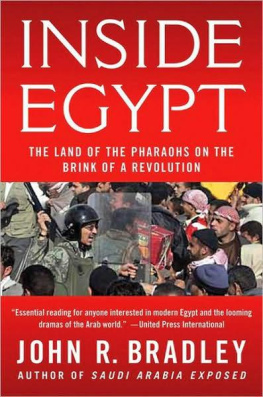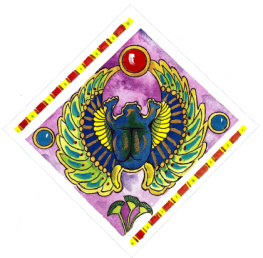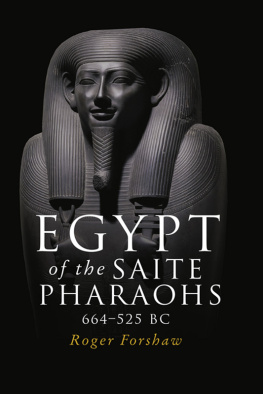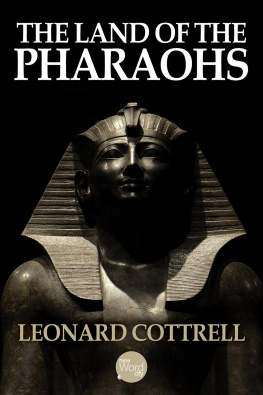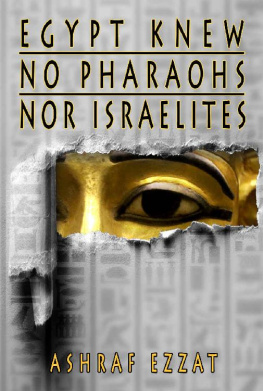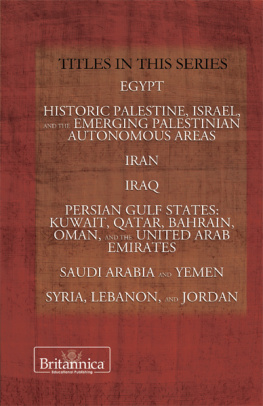John R. Bradley - Inside Egypt: The Land of the Pharaohs on the Brink of a Revolution
Here you can read online John R. Bradley - Inside Egypt: The Land of the Pharaohs on the Brink of a Revolution full text of the book (entire story) in english for free. Download pdf and epub, get meaning, cover and reviews about this ebook. year: 2008, publisher: Palgrave Macmillan, genre: Politics. Description of the work, (preface) as well as reviews are available. Best literature library LitArk.com created for fans of good reading and offers a wide selection of genres:
Romance novel
Science fiction
Adventure
Detective
Science
History
Home and family
Prose
Art
Politics
Computer
Non-fiction
Religion
Business
Children
Humor
Choose a favorite category and find really read worthwhile books. Enjoy immersion in the world of imagination, feel the emotions of the characters or learn something new for yourself, make an fascinating discovery.
- Book:Inside Egypt: The Land of the Pharaohs on the Brink of a Revolution
- Author:
- Publisher:Palgrave Macmillan
- Genre:
- Year:2008
- Rating:4 / 5
- Favourites:Add to favourites
- Your mark:
- 80
- 1
- 2
- 3
- 4
- 5
Inside Egypt: The Land of the Pharaohs on the Brink of a Revolution: summary, description and annotation
We offer to read an annotation, description, summary or preface (depends on what the author of the book "Inside Egypt: The Land of the Pharaohs on the Brink of a Revolution" wrote himself). If you haven't found the necessary information about the book — write in the comments, we will try to find it.
Inside Egypt: The Land of the Pharaohs on the Brink of a Revolution — read online for free the complete book (whole text) full work
Below is the text of the book, divided by pages. System saving the place of the last page read, allows you to conveniently read the book "Inside Egypt: The Land of the Pharaohs on the Brink of a Revolution" online for free, without having to search again every time where you left off. Put a bookmark, and you can go to the page where you finished reading at any time.
Font size:
Interval:
Bookmark:

ALSO BY JOHN R. BRADLEY AND AVAILABLE FROM PALGRAVE MACMILLAN
Saudi Arabia Exposed: Inside a Kingdom in Crisis

INSIDE EGYPT
Copyright John R. Bradley, 2008.
All rights reserved. No part of this book may be used or reproduced in any manner whatsoever without written permission except in the case of brief quotations embodied in critical articles or reviews.
First published in 2008 by
PALGRAVE MACMILLAN
175 Fifth Avenue, New York, N.Y. 10010 and
Houndmills, Basingstoke, Hampshire, England RG21 6XS.
Companies and representatives throughout the world.
PALGRAVE MACMILLAN is the global academic imprint of the Palgrave Macmillan division of St. Martin's Press, LLC and of Palgrave Macmillan Ltd. Macmillan is a registered trademark in the United States, United Kingdom and other countries. Palgrave is a registered trademark in the European Union and other countries.
ISBN-13: 978-1-4039-8477-7 ISBN-10: 1-4039-8477-8
Library of Congress Cataloging-in-Publication Data Bradley, John R., 1970-
Inside Egypt : the land of the Pharaohs on the brink of a revolution / John R. Bradley. p. cm.
Includes bibliographical references and index. ISBN 1-4039-8477-8
1. EgyptPolitics and government1952-1970. 2. EgyptPolitics and government 1970-1981. 3. EgyptPolitics and government1981- 4. EgyptSocial conditions 1952-1970. 5. EgyptSocial conditions1970-1981. 6. EgyptSocial conditions1981-I. Title.
DT107.83.B665 2008 962.05'5dc22
2007050070
A catalogue record of the book is available from the British Library.
Design by Letra Libre
First edition: May 2008
10 9 8 7 6 5 4 3 2 1
Printed in the United States of America.
CONTENTS
for Kelvin

INSIDE EGYPT
CHAPTER ONE
A FAILED REVOLUTION
A short walk from the American University in Cairo, through the bustling downtown streets of Africa's largestand the Arab world's most populouscapital city, is a shabby little cafe called Al-Nadwa Al-Saqafiya. A hangout for Cairo's embattled community of liberal intellectuals, its wooden chairs and tables spill onto the street outside. The animated voices of customers compete with the constant honking of car horns; the orders operatically delivered by white-jacketed waiters are met with a chorus from nearby street vendors' repetitive cries. Smoke from the water pipes intermingles with exhaust fumes from the gridlocked traffic. It is a microcosm of contemporary Cairo: traffic congestion, noise pollution, and a social vibrancy created by a people who, despite the chaos engulfing them (or perhaps because of it), love nothing more than to engage in animated debate in public spaces about the trivial and the profound. In the winter of 2006, a movie called The Yacoubian Building was taking Egypt by storm as I made my way to Al-Nadwa Al-Saqafiya to meet up with Alaa Al-Aswany, author of the novel of the same name on which the movie was based. The most expensive Egyptian film ever produced, it features many of the country's established stars, and in its opening weeks broke all Egyptian box-office records. Set in a once-grand apartment block in the historic downtown district of Cairo, not far from Al-Nadwa Al-Saqafiya, the kaleidoscope of characters represent the various strata of Egypt's complex society. A central character is the building itself. It is a poor shadow of the splendor of its 1930s and 1940s' heyday, during what is known as Egypt's belle poque. The building's deterioration points to Egypt's own sad, steady fall from grace during the more than five decades of military rule since the July 1952 coup that overthrew the British-backed monarchy and brought to power Gamal Abdul Nasser and the Free Officers. With its near-barren cultural landscape, where the once-great but now heavily censored cinema industry churns out endless slapstick comedies, the movie exposes with unusual eloquence the grim reality that daily confronts Egyptians. Sexual decadence and political corruption permeate the world in which the characters move. Pimps, whores, petty tricksters, and professional con men with high connections vie for a share of the spoils of a declining nation now suffering the nightmare of a twin curse: free-fall privatization from above and the spread of Islamization from below. The rich in this portrayal of Egypt get ever richer, and the poor ever poorer. The middle class, meanwhile, has all but disappeared and along with it any hope of social advancement based on a good education and a willingness to work hard. Radical Islamists prey on the vulnerable and the destitute abandoned by the system. The urbane and educated are trampled underfoot by mafia-like thugs known in Arabic as the "war rich"better translated into English as "fat cats." This is a country from which almost all the young people long to escape, their last hope for a better future to leave their loved ones and travel in search of work and dignity.

Each Thursday Al-Aswany would meet up at Al-Nadwa Al-Saqafiya with friends, fellow intellectuals, and admirers of his novel to discuss the latest political and cultural developments in Egypt. Admirers he had aplenty. Even before the dramatic success of the movie made his name as an author internationally, The Yacoubian Building had been the best-selling novel in Egypt and the wider Arab world since its publication in 2002. Many had gone so far, somewhat prematurely, as to crown Al-Aswany the successor to Naguib Mahfouz, the great Egyptian author and Nobel Prize winner. Mahfouz, whose novels were also made into popular movies, died in a Cairo hospital in 2006 after a long illness following an assassination attempt in the early 1990s by an Islamist extremist, which had left him unable to write. In his late forties, with the neck and forearms of a prizefighter, Al-Aswany's name indicates that his family originates from the magnificent southern Egyptian city of Aswan, the Nubian heartland. His is an unpretentious, welcoming manner, suggesting (again like Mahfouz) that he had not let his newfound fame go to his head. He has lived in America and France, and is fluent in English, Spanish, and French, in addition to his native Arabic. A dentist by profession, he set up his first practice in the eponymous building in downtown Cairo that is fictionalized in the novel. Oddly for a dentist, but like most of the Egyptian men I have met, he is a chain-smoker. As I introduced myself, to break the ice he cracked a joke about cross-cultural integrationthe theme of his latest novel, Chicago after noticing that I smoke the local brand Cleopatra while he clutched two packets of his preferred American cigarettes.
There were about fifty people gathered at the coffee shop that chilly evening in the winter of 2006. I sat in the back row, an observer rather than a participant. They passed around a microphone hooked up to an amplifier that allowed each to be heard above the traffic din outside. The discussion, which Al-Aswany opened with a short speech, was dominated by the fallout from a recent comment by Culture Minister Farouk Hosni. He had said that the wearing of the veil, ubiquitous in Egypt since the early 1990s and resisted now only by the country's Coptic Christian minority, was a sign of "backwardness." The backlash against Hosni had been as tedious as it was merciless, proving nothing more, it struck me, than the validity of his assertion. Muslim Brotherhood MPs joined those of President Hosni Mubarak's own ruling (and ostensibly secular) National Democratic Party, which dominates the legislative assemblies formed on the back of what many, including the opposition, claim are fixed elections, in calling for Hosni's resignation. Columnists in pro-government and opposition newspapers alike launched vicious ad hominem attacks on the culture minister. Some suggested slyly (and with no apparent reason) that a man who seemed to have little interest in women should be the last person to express a strong opinion on what they were wearing. On the surface, this may seem an unlikely alliance of Islamist and secular forces, not least since the regime is routinely accused of imprisoning and torturing opposition activists and persecuting without mercy especially the fundamentalist Muslim Brotherhood. However, looked at more closely, the reaction to Hosni's comments nicely illustrates how the regime is stealing the clothes of the Islamists to shore up its ever-dwindling support among the masses. It is a practice that not incidentally has the benefit of pushing progressive voices still farther to the margins while bolstering an "Islamist threat" the regime plays up to help keep pressure and criticism from its paymasters in Washington to a minimum.
Next pageFont size:
Interval:
Bookmark:
Similar books «Inside Egypt: The Land of the Pharaohs on the Brink of a Revolution»
Look at similar books to Inside Egypt: The Land of the Pharaohs on the Brink of a Revolution. We have selected literature similar in name and meaning in the hope of providing readers with more options to find new, interesting, not yet read works.
Discussion, reviews of the book Inside Egypt: The Land of the Pharaohs on the Brink of a Revolution and just readers' own opinions. Leave your comments, write what you think about the work, its meaning or the main characters. Specify what exactly you liked and what you didn't like, and why you think so.

